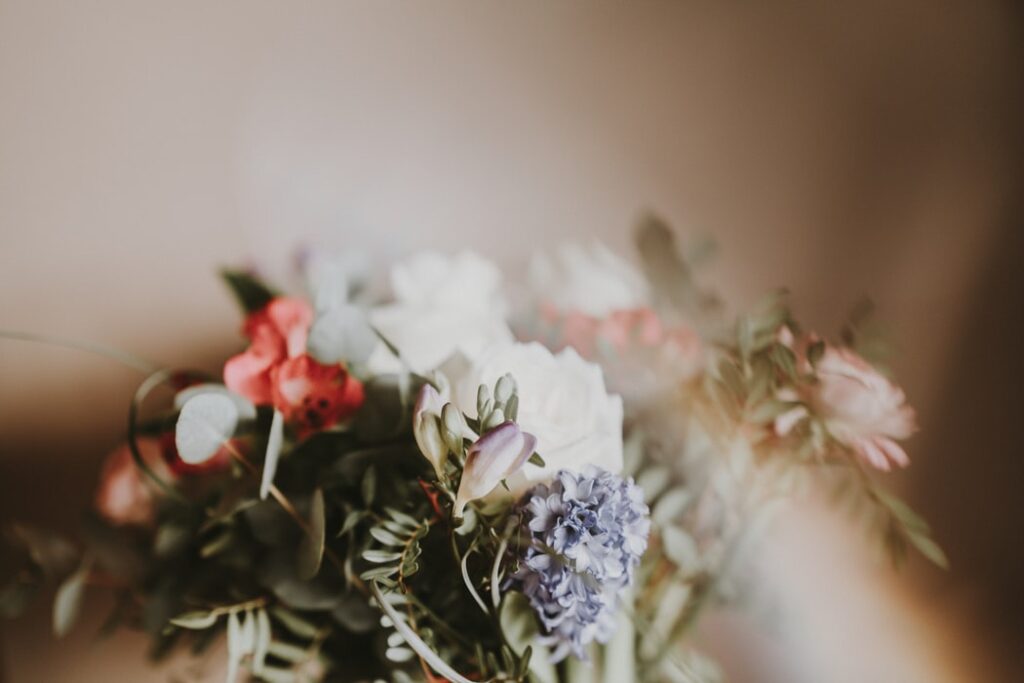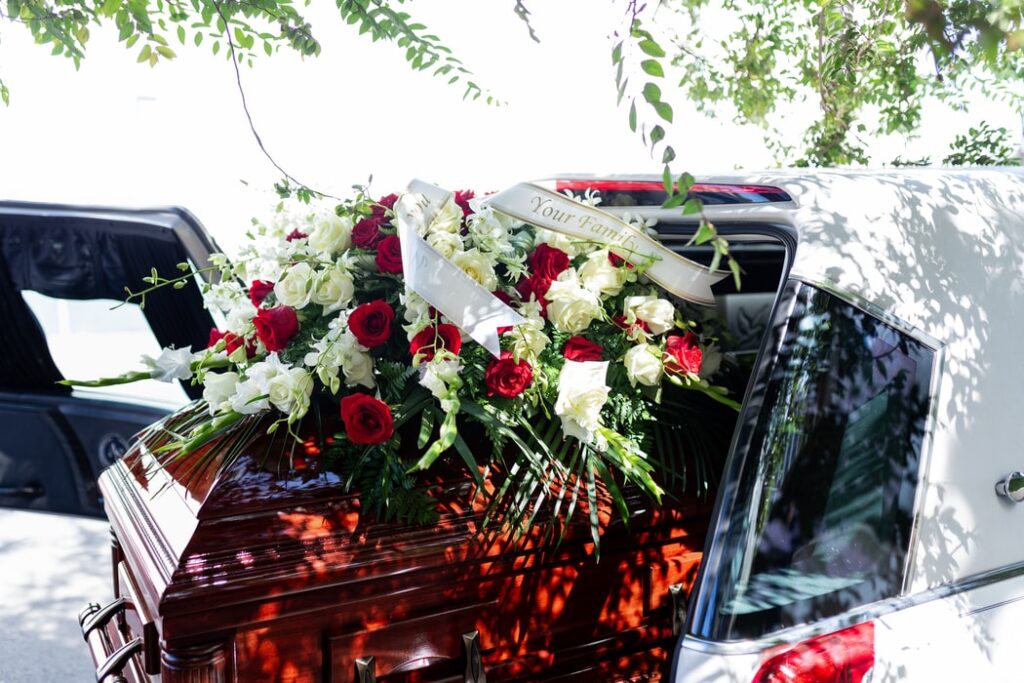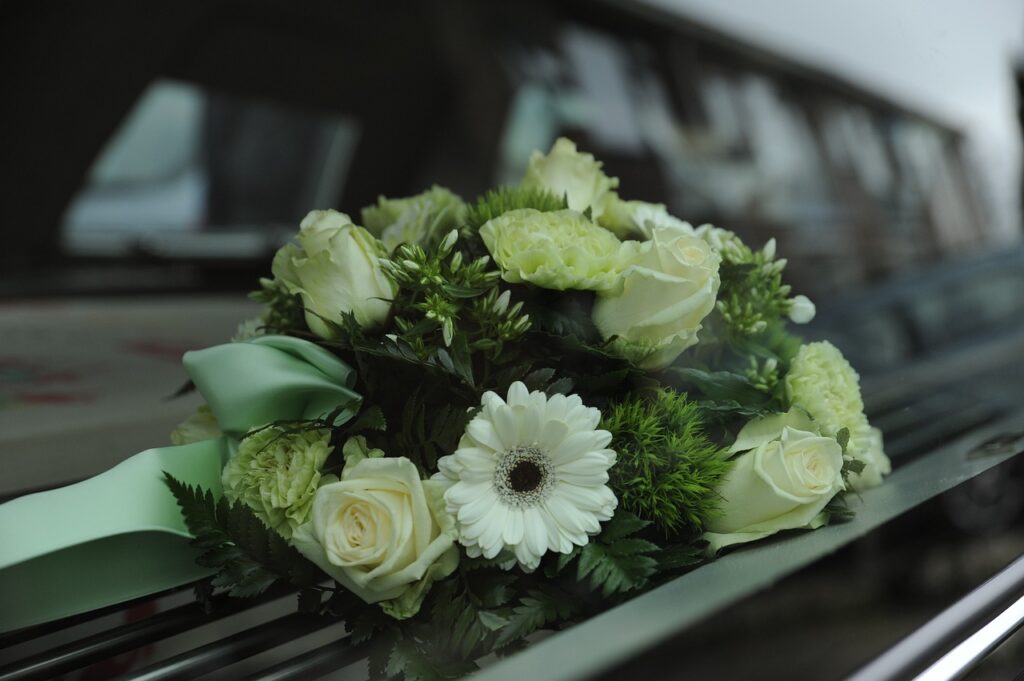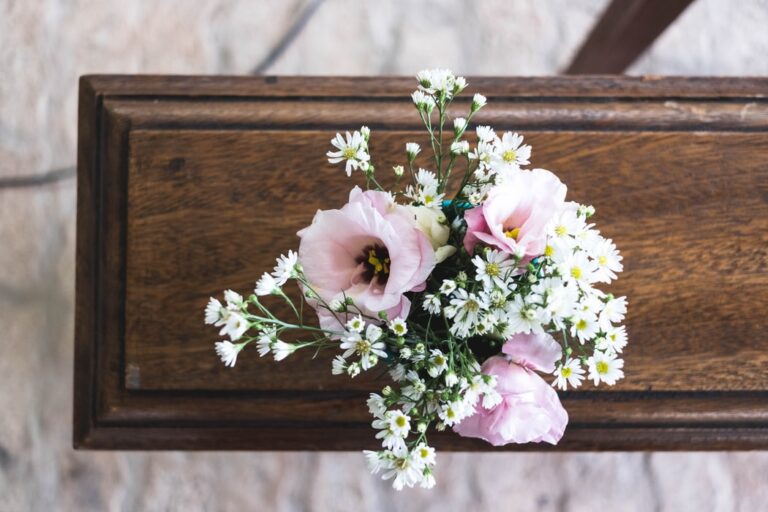The answer to this question depends on your relationship to the deceased. If you are a member of the immediate family, funeral flowers in the form of standing sprays, casket sprays, and inside pieces may be expected. Extended family members can also give standing sprays and floral baskets. Grandchildren can give sprays that can be placed inside the casket. Friends and business associates can give wreaths, floral baskets, and a standing spray as a group.
To avoid burdening the immediate family with the disposal or care of the flowers after the funeral service, opt for live plants or a hand bouquet to express sympathy. You can purchase a flower arrangement from a local flower shop Singapore but be sure to place the flowers in a vase. Dispose of cellophane that can fly away from the graveside and litter the cemetery.
Why are Flowers Brought to the Funeral?

According to funeral florist at Little Flower Hut, flowers at the funeral can show the bereaved family how many people love and remember the one they lost. Funeral flowers also express sympathy that our condolences cannot extend. We show our sentiments during this time of grief by giving funeral flowers.
Loved ones and friends can also express their love, respect, and admiration for the deceased through flowers. We pay tribute to the one we lost through flowers. Also, flowers can add beauty and warmth to the funeral site.
Funeral flowers have a longstanding history. It is traditionally acceptable and in some cases expected to bring flowers to the funeral in honor of the departed. Showing up with a bouquet of flowers in a bouquet or in a basket also signifies that we are paying respect to the deceased. We can also give flowers to the bereaved to express our comfort and support. Flowers can also signify eternal life, love, and remembrance.
When are Flowers Unacceptable

Sensitive people may not want to have flowers at the funeral. They may consider flowers as a symbol of our fleeting life that we bloom and die in a short lifetime. The bereaved family can also be overwhelmed when there are many funeral flowers present during the service. Some families are explicit in telling friends and extended family that they don’t want flowers at the funeral.
You may notice that some obituaries note “in lieu of flowers” or “please omit flowers.” Some families prefer donations to a charity or an organization instead. In most cases, funeral flowers always mean well. In some cases, those who feel their presence can only cause stress to the bereaved, may find it more appropriate to send flowers instead.
There are opinions for the giving of funeral flowers even when the bereaved family makes it clear not to give flowers. In some cases, this can be due to religious beliefs or traditions. Be cautious to respect their beliefs and traditions.
Telling guests to “Please Omit Flowers” can cause feelings of resent and embarrassment to some. There are people that don’t want to be told how they should express sympathy or remembrance to the dead. It is vital to be sensitive about how others would feel if you showed up with flowers to a funeral that already told you not to as this may cause embarrassment to the giver as well as to the one who made the request.
What Flowers to Bring to a Funeral

When you find out about the death of a friend or a loved one, you can arrange for a same day flower delivery on the day of the funeral. Whether you can attend the funeral in person or you are unable to be with the family on that day, funeral flowers are generally acceptable.
Casket flowers are traditionally purchased by the members of the immediate family. Standing sprays and flower baskets can be arranged surrounding the casket during the funeral service. The funeral flowers can be left at the graveside after the service is over.
If the flowers are meant for the bereaved family, opt for a bouquet of flowers that the family can take home after the service is over. They can plant the flowers, preserve them, or give them to hospitals. Live plants and flowers that celebrate life are preferable over flowers that explicitly look like funeral flowers. While standing sprays and casket sprays make a bigger impact, your flowers can be enjoyed longer if you give them in a floral arrangement that can be used to add warmth at home.
A local florist in Singapore can help you make an appropriate arrangement. Peace lily, white lilies, white orchids, and dark crimson roses are customary in funerals. If you want the family to take the flowers home with them or repurpose the flowers, opt for chrysanthemums, tulips, and carnations.
Flowers for a deceased child should not be gloomy. The best florist Singapore can create an arrangement of flowers into the shape of a bear, an angel, or any other symbolism of the child’s life. You can also opt for heart-shaped floral arrangements. Be cautious when giving cross-shaped floral baskets or sprays as some religious beliefs may take offense at this gesture.
Conclusion

Bringing flowers to the funeral is almost always considered a well-meaning gesture. However, when the family explicitly requests that you forego bringing flowers at the funeral, it is often best to respect their wishes so as not to add to their stress. You may always bring flowers to the grave after the memorial stone is in place. You can also send a vase of flowers to the family home after the funeral is over.










